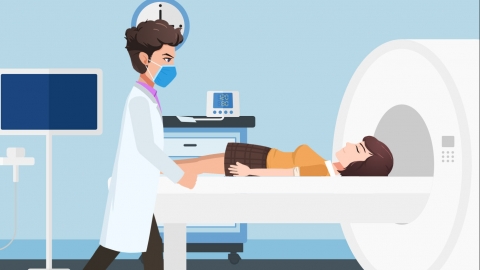How to Determine if In Vitro Fertilization (IVF) is Suitable for You
Generally, "test-tube baby" refers to in vitro fertilization and embryo transfer (IVF-ET). Usually, whether someone is suitable for IVF-ET can be determined through various examinations, including a basic health assessment, fertility function assessment, vaginal discharge examination, endocrine examination, and B-ultrasound examination. Detailed analysis is as follows:

1. Basic Health Assessment
Both partners need to undergo basic examinations such as blood pressure, blood glucose, urine, and routine blood tests to assess overall health and screen for contraindications to pregnancy. These tests help doctors understand the patient's basic physiological condition and provide important reference for subsequent treatment.
2. Fertility Function Assessment
Assessment of fertility function is a key part of the pre-procedural examination for IVF-ET, including the six sex hormone tests, gynecological ultrasound, and routine semen analysis. The six sex hormone tests require blood sampling on the 2nd to 5th day of menstruation to evaluate ovarian reserve function. Gynecological ultrasound is used to examine the condition of the uterus and bilateral adnexa. Routine semen analysis evaluates the male's fertility.
3. Vaginal Discharge Examination
Vaginal discharge examination can detect whether a woman has bacterial vaginosis, trichomonas vaginitis, vulvovaginal candidiasis, or other diseases. If these conditions are present, IVF-ET is generally not recommended, as it may lead to abnormal vaginal discharge and affect embryo implantation.
4. Endocrine Examination
Endocrine examination includes the six sex hormone tests and thyroid function tests, which can determine whether a woman's ovarian function is normal and whether there is any endocrine disorder. If an endocrine disorder exists, IVF-ET is not recommended as it may affect the normal development of the fetus.
5. B Ultrasound Examination
B ultrasound examination can visualize the condition of the uterus and determine whether there are diseases such as uterine fibroids, adenomyosis, or endometrial polyps. If these conditions exist, IVF-ET is generally not recommended, as it may cause uterine enlargement and affect the normal development of the fetus.
During the treatment period of IVF-ET, both partners should maintain a healthy diet, eating more foods rich in protein, vitamins, and minerals, such as lean meat, fish, legumes, vegetables, and fruits. Avoid eating raw, cold, greasy, spicy, or other irritating foods. Ensure adequate sleep and rest, avoiding staying up late and excessive fatigue.





